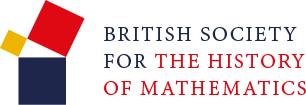About the History of Maths
About the History of Maths
Mathematics has been part of human culture since the beginnings of civilization. Its study and practice has gone hand in hand with the evolution and development of commerce, architecture, legal theory, cosmology, astrology, and countless other activities. The history of mathematics today addresses a rich cultural heritage across continents, peoples, and ages, taking in the practical traditions of merchants’ accounts and surveying just as it does the elevated traditions of learned scholars at court or the modern day university professor.
In contrast to the theory and practice of mathematics, the history of mathematics is a relatively young discipline. The earliest publications collecting facts from past and present achievements of the mathematical sciences appeared in the sixteenth century, but it was not until the eighteenth century that something of the nature of developmental history began to emerge with Montucla’s Histoire des mathématiques. The first professional teachers of the history of mathematics came later still, often from within the teaching profession itself. Close ties between mathematics education and the history of mathematics exist worldwide up to today – and are reflected in a strong education section within the BSHM.
Over the last 40-50 years the history of mathematics has not so much undergone a transformation as a fundamental revision and re-appraisal. Internal or problem history (Entwicklungsgeschichte) which long dominated the discipline has now been supplemented by other considerations such as the wider social or cultural contexts in which mathematical work has been carried out. Beyond mathematical texts and problems we might today be concerned with the biographies of mathematicians or the milieus in which they moved. The history of mathematics today reflects more than at any time in the past the historical significance of mathematics itself.
